Dave Hakkens updates open-source Precious Plastic recycling machines
Dutch designer Dave Hakkens has updated his series of Precious Plastic machines, which anyone can build and use to make products by recycling the material (+ movie).
Blueprints for the new machines, which the designer described as "a solution to plastic pollution", are now available online for anyone to download and build.
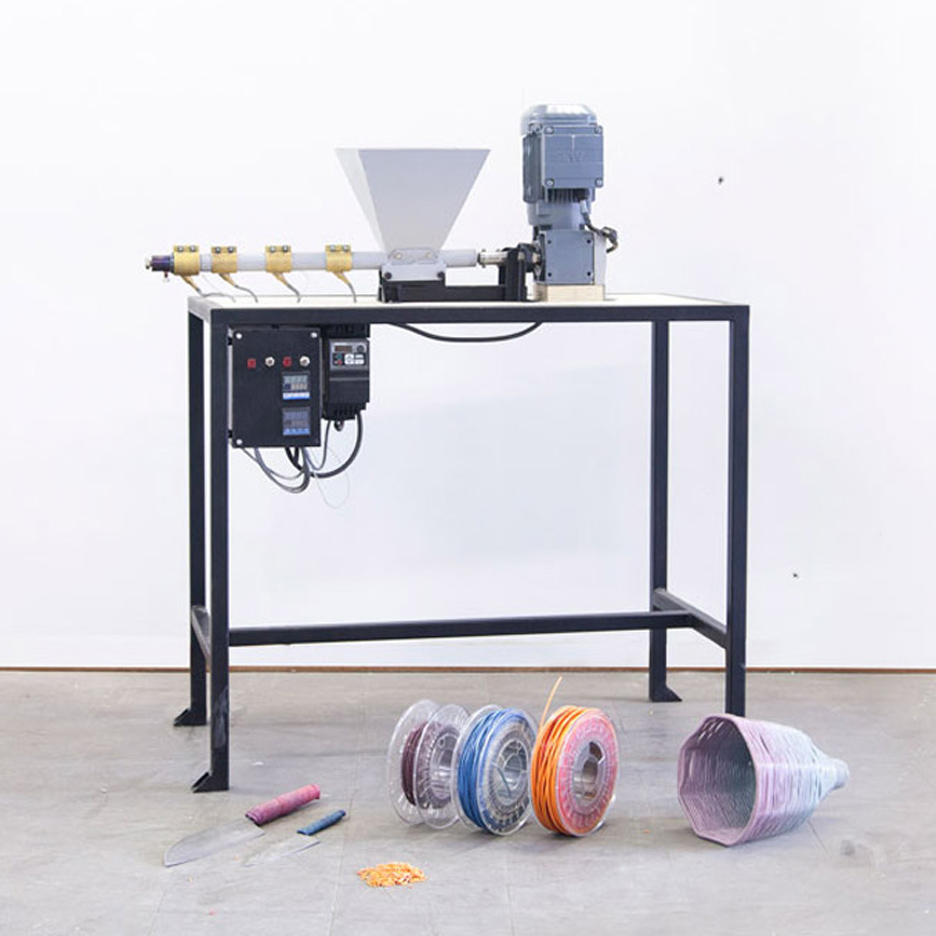
The devices are made using everyday materials and basic tools that Hakkens said are available all over the world.
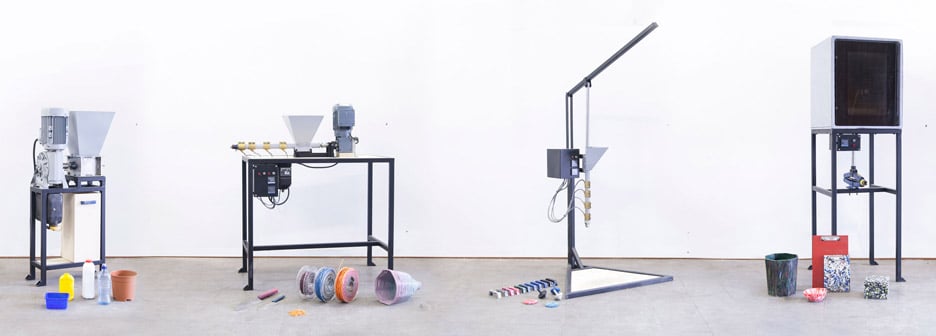
The set includes a plastic shredder, an extruder, an injection moulder and a rotation moulder, which can each ne used to turn waste plastic into new products. Hakkens first showed prototype versions at the Design Academy Eindhoven graduation show in 2013, and has spent the last two years refining the designs.
"People can play around, start a business and recycle like rockstars," said Hakkens, who also designed the original Phonebloks modular mobile phone.
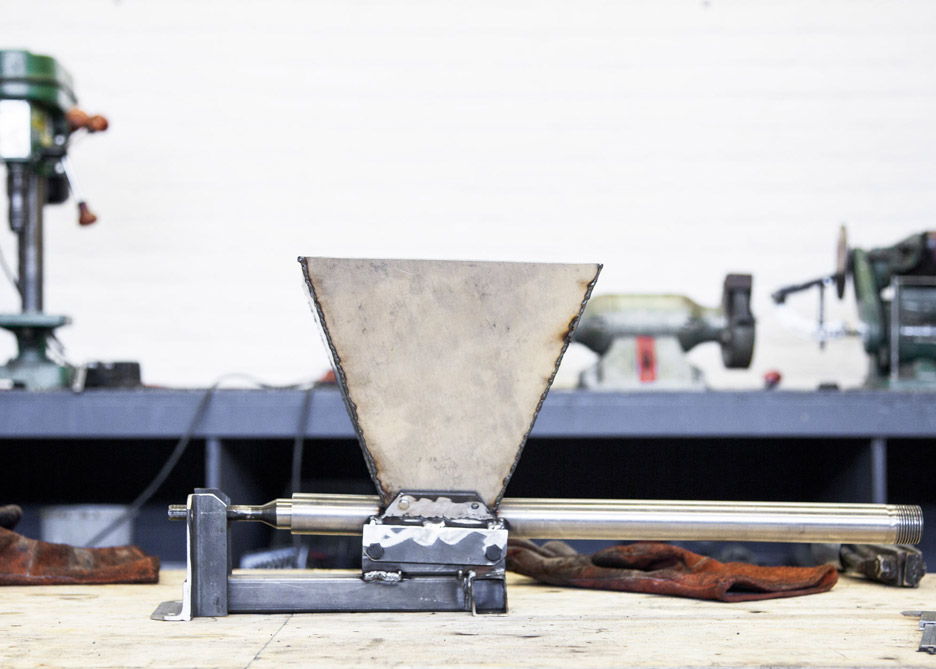
He hopes to address the reported 311 million tonnes of plastic waste created around the world each year, less than 10 per cent of which is currently recycled.
"Most of this will end up in the wrong place, landfills, oceans, inside animals," he said. "It's damaging our earth."
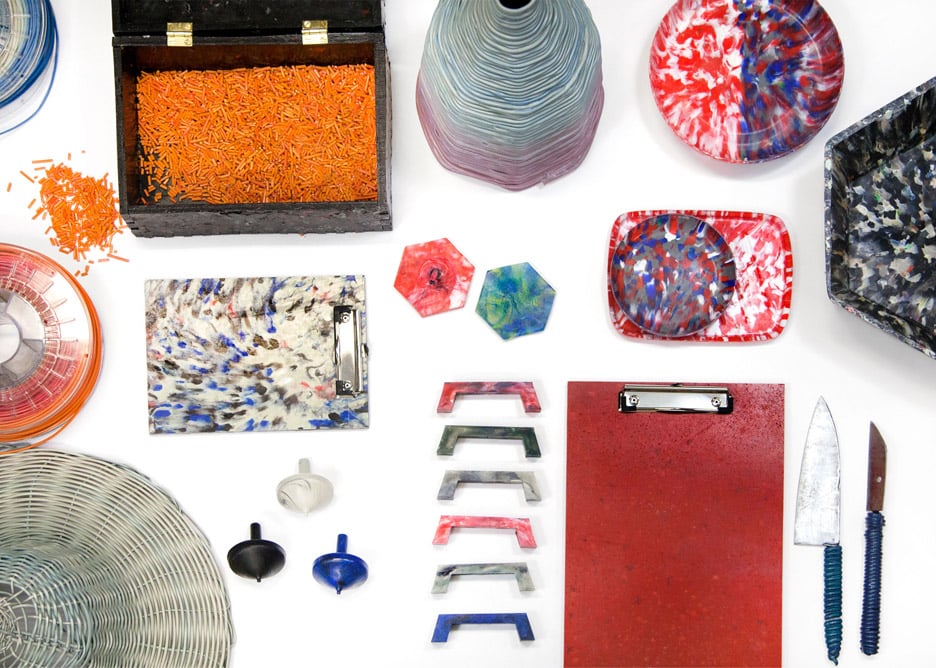
A recent effort by designers and companies to clear up waste plastic from the oceans and raise awareness of the problem has resulted in a variety of projects.
Brands including G-Star RAW and Adidas have signed up to the Parley for the Oceans programme, which turns plastic salvaged from the sea into products like clothing and trainers.
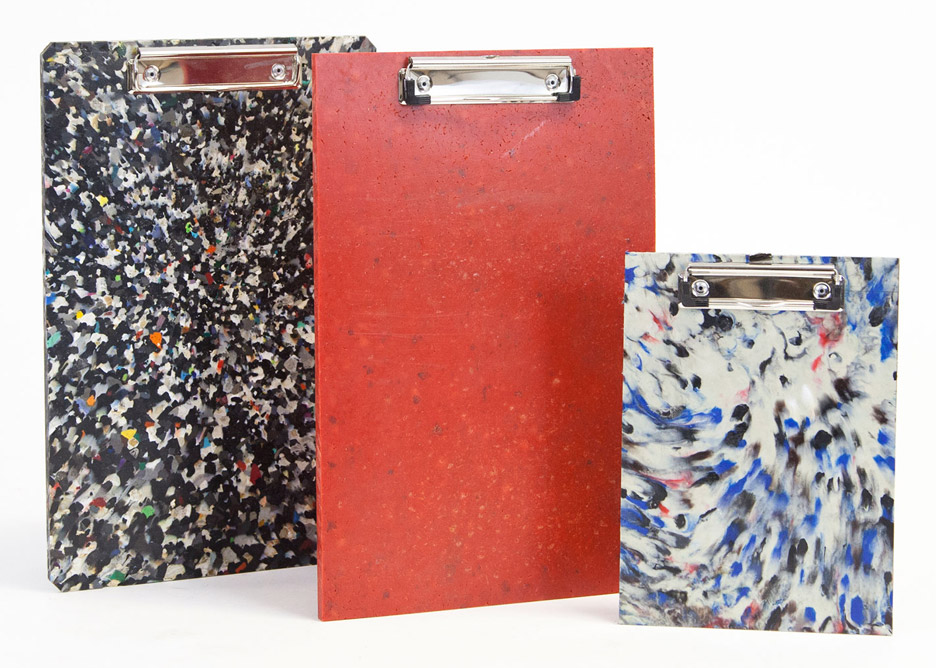
Architecture firm Spark also wants to recycle the material into a series of elevated beach huts.
Hakkens has used the Precious Plastic machines to create chopping boards, bowls, clipboards and plant pots that feature a distinctive mottled pattern of colours – all from waste material.
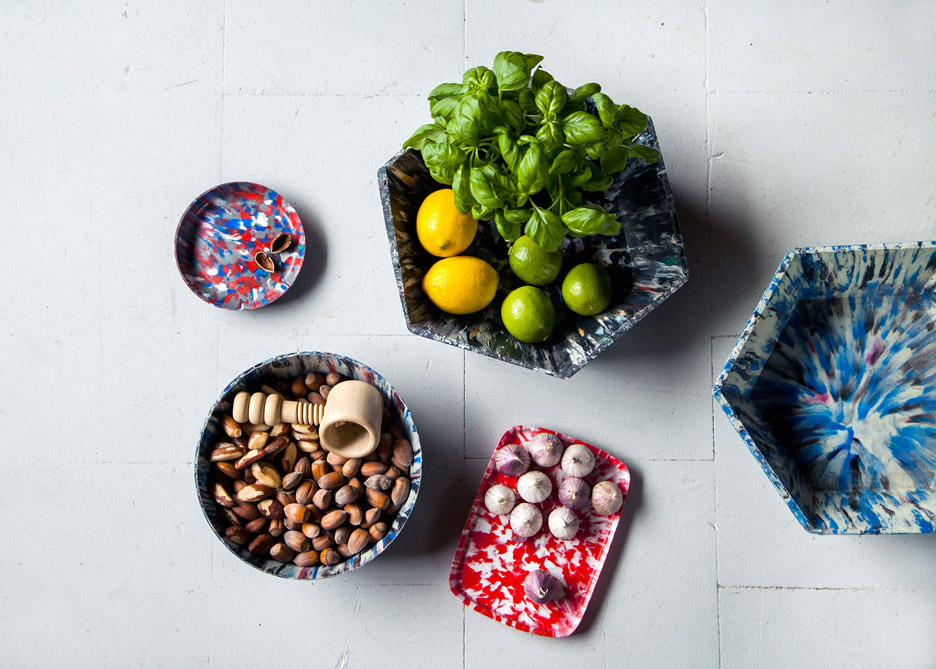
By making the blueprints downloadable, Hakkens hopes others can become a "craftsman of plastic", helping to clean up local neighbourhoods and start their own business.
"The big plastic industry prefers to work with new plastic," added Hakkens. "Recycled plastic might slow down production or damage their machines. And people haven’t got the machines to start themselves."
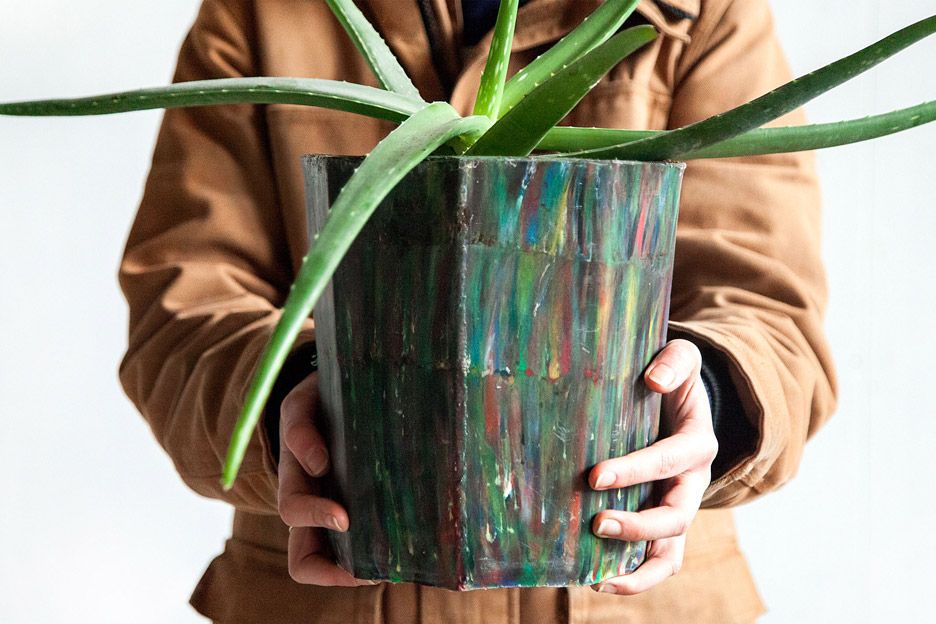
In a similar project, Studio Swine created an open-source machine for turning waste plastic into stools, on board a trawler that scoops the rubbish from the sea.
A floating Seabin also aims to address the world's rubbish build up, by sucking debris out of marinas and ports.